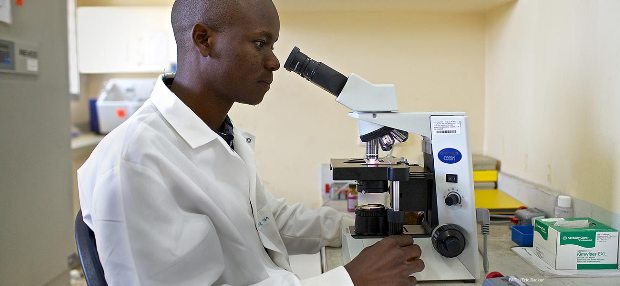[ad_1]

The seeming non-compliance with the Rapid Diagnostic Test (RDT) protocol in malaria treatment remains a major challenge to malaria control.
Inadequate and irregular supply of malaria test kits to health facilities have been cited as possible reasons for the default.
These observations emerged at a workshop on malaria, organised by Hope for Future Generations (HFFG), a non-governmental organisation.
The World Health Organisation has recommended RDT and Microscope Testing at the primary and secondary healthcare levels, respectively for malaria control.
It is also a requirement by the National Health Insurance Authority (NHIA) for the payment of claims submitted by health facilities for malaria treatment.
The participants noted that some health facilities at the primary healthcare level such as Community Health Planning Services (CHPS) Compounds, still treat all fever conditions as malaria without RDT confirmation.
Giving a general overview of malaria in the country, Dr Atsu Seake-Kwawu, the Ho Municipal Director of Health, urged patients to insist on being tested for malaria anytime they had malarial symptoms.
He said every patient had the right to know about their health conditions but unfortunately patients hardly bothered to do so.
Dr Seake-Kwawu explained that testing for the malaria parasite was necessary because many other diseases showed the same symptoms as malaria.
Unless a malaria test was done for confirmation, he said, some patients’ lives could be in danger if they are treated for malaria.
Mr. Johnson Addison, the Monitoring and Evaluation Officer, HFFG, called on health officials to strictly adhere to the policy of “test, treat, and track” of malaria cases.
According to the Ghana Health Service, Malaria has been a major cause of poverty and low productivity accounting for about 32.5 per cent of all OPD attendances and 48.8 per cent of under five years admissions in the country, as captured by the 2009 report of the National Malaria Control Programme.
The attempt to control malaria in Ghana began in the 1950s, according to the Service.
The HFFG with funding from the British Department for International Development, is leading a consortium of NGOs to reduce malaria burden among all age groups in targeted communities through increased use of long lasting insecticide nets and approved malaria treatment protocol.
–
Source: GNA
[ad_2]
